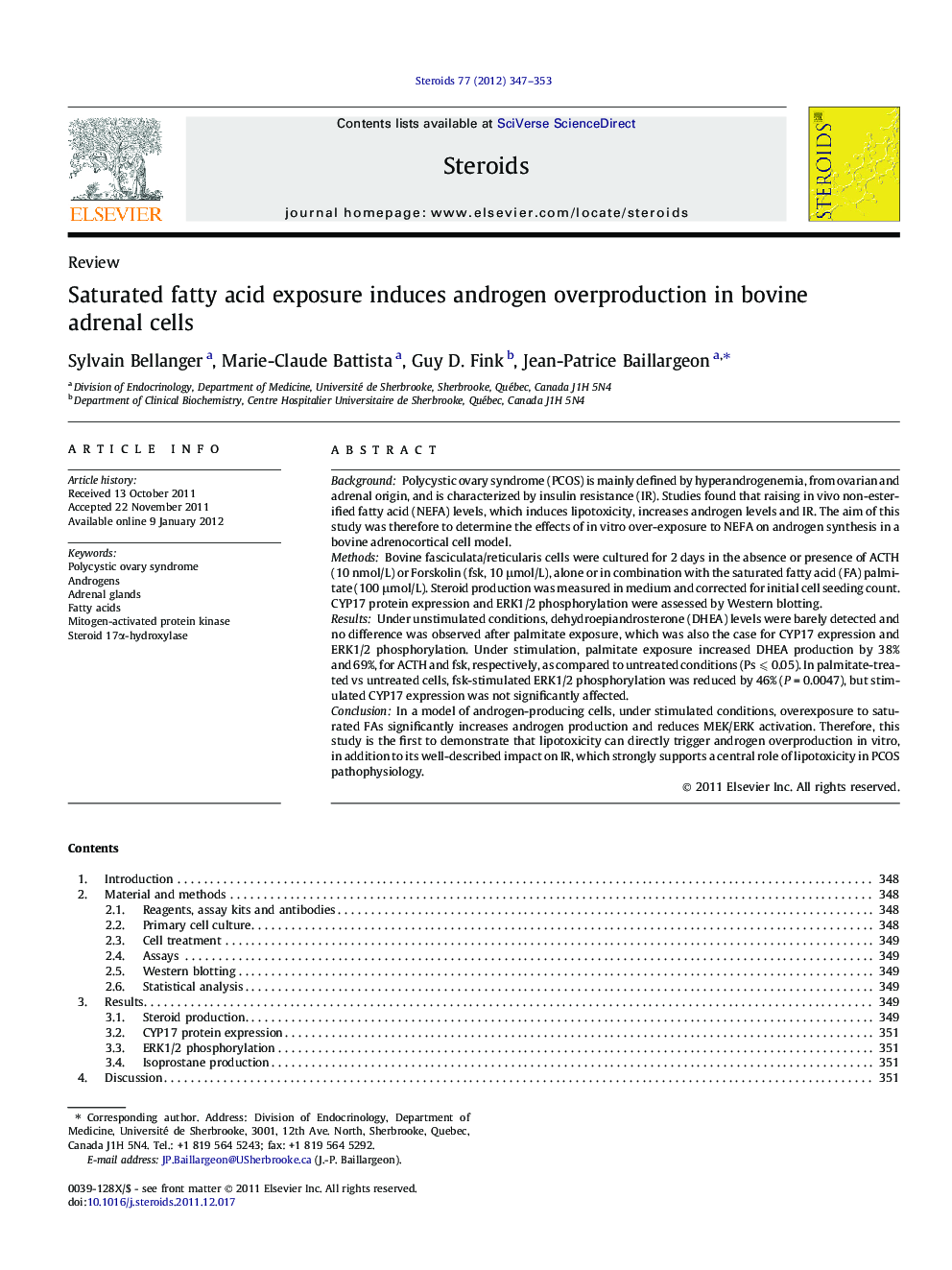| Article ID | Journal | Published Year | Pages | File Type |
|---|---|---|---|---|
| 2028126 | Steroids | 2012 | 7 Pages |
BackgroundPolycystic ovary syndrome (PCOS) is mainly defined by hyperandrogenemia, from ovarian and adrenal origin, and is characterized by insulin resistance (IR). Studies found that raising in vivo non-esterified fatty acid (NEFA) levels, which induces lipotoxicity, increases androgen levels and IR. The aim of this study was therefore to determine the effects of in vitro over-exposure to NEFA on androgen synthesis in a bovine adrenocortical cell model.MethodsBovine fasciculata/reticularis cells were cultured for 2 days in the absence or presence of ACTH (10 nmol/L) or Forskolin (fsk, 10 μmol/L), alone or in combination with the saturated fatty acid (FA) palmitate (100 μmol/L). Steroid production was measured in medium and corrected for initial cell seeding count. CYP17 protein expression and ERK1/2 phosphorylation were assessed by Western blotting.ResultsUnder unstimulated conditions, dehydroepiandrosterone (DHEA) levels were barely detected and no difference was observed after palmitate exposure, which was also the case for CYP17 expression and ERK1/2 phosphorylation. Under stimulation, palmitate exposure increased DHEA production by 38% and 69%, for ACTH and fsk, respectively, as compared to untreated conditions (Ps ⩽ 0.05). In palmitate-treated vs untreated cells, fsk-stimulated ERK1/2 phosphorylation was reduced by 46% (P = 0.0047), but stimulated CYP17 expression was not significantly affected.ConclusionIn a model of androgen-producing cells, under stimulated conditions, overexposure to saturated FAs significantly increases androgen production and reduces MEK/ERK activation. Therefore, this study is the first to demonstrate that lipotoxicity can directly trigger androgen overproduction in vitro, in addition to its well-described impact on IR, which strongly supports a central role of lipotoxicity in PCOS pathophysiology.
► Bovine adrenal fasciculata/reticularis cells were stimulated with ACTH or forskolin. ► DHEA production was increased in stimulated cells overexposed to palmitate. ► ERK1/2 phosphorylation was decreased in stimulated cells overexposed to palmitate. ► Saturated fatty acids can directly trigger androgen overproduction in vitro. ► Lipotoxic effects on androgenesis may involve the MEK/ERK pathway.
